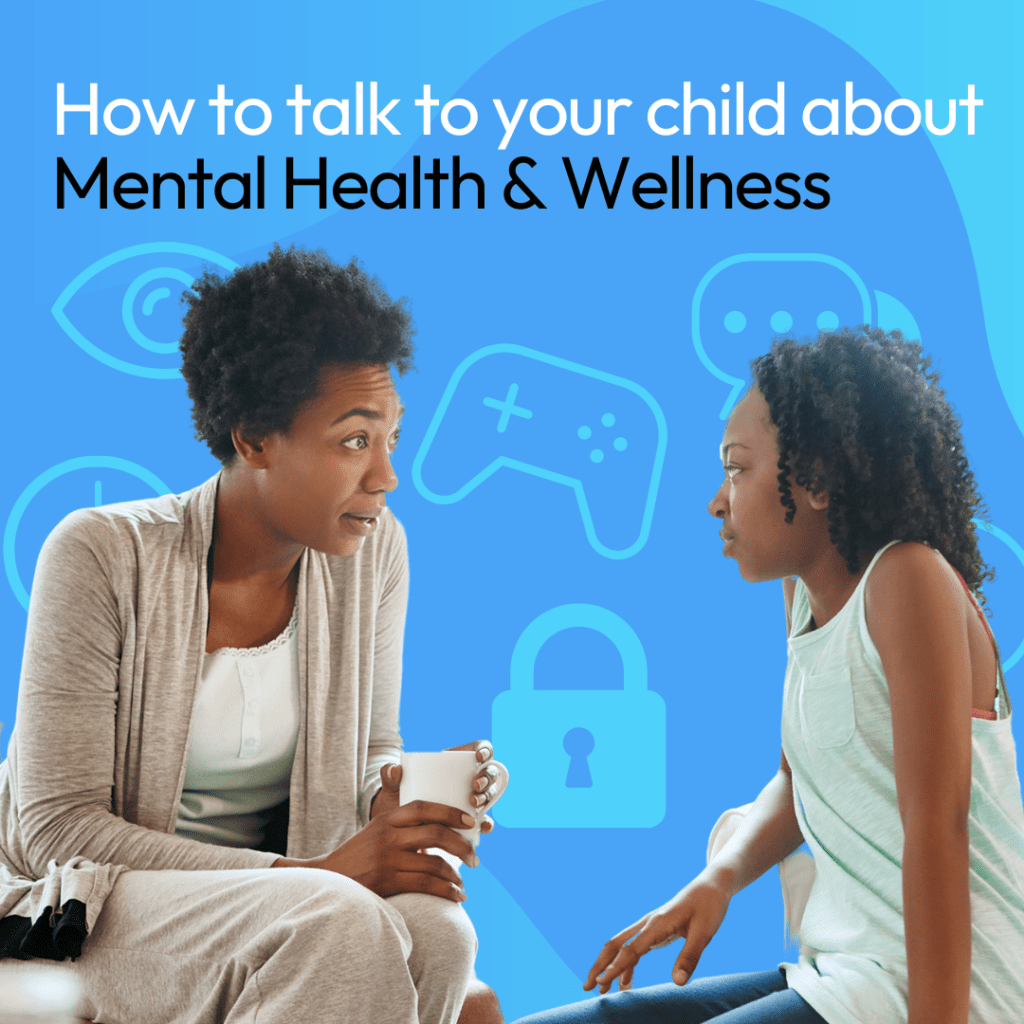Promoting mental health and wellness in children is crucial for their overall well-being and development. As parents, initiating conversations about mental health can feel challenging, but it is a vital step toward fostering resilience and emotional intelligence. In this blog post, we will provide practical tips and guidance on how to talk to your children about mental health and wellness. By cultivating open communication, reducing stigma, and providing support, you can empower your children to navigate their emotions and maintain good mental health throughout their lives.

How to talk to your child about mental health & wellness
- Create a Safe and Judgment-Free Space: Establish an environment of trust and openness where your child feels comfortable discussing their thoughts and feelings. Let them know that it is normal to experience a range of emotions and that you are there to listen without judgment. Encourage them to share what they are going through and reassure them that their emotions are valid.
- Use Age-Appropriate Language: Adapt your language and explanations based on your child’s age and level of understanding. Use simple and relatable terms to explain complex concepts. For younger children, you can use metaphors or stories to help them grasp the idea of emotions. With older children, provide more detailed explanations about mental health and its impact on overall well-being.
- Encourage Emotional Awareness: Help your child develop emotional intelligence by encouraging them to identify and express their feelings. Teach them the vocabulary to describe their emotions and validate their experiences. Discuss different emotions and how they can be expressed in healthy ways, such as through talking, writing, or engaging in creative activities.
- Normalize Mental Health: Promote an understanding that mental health is a normal part of life. Explain to your child that just like physical health, mental health requires attention and care. Discuss mental health in everyday conversations, highlighting the importance of self-care, stress management, and seeking support when needed. Normalize the idea of seeking help from professionals, just as we visit doctors for physical ailments.
- Be a Role Model: Lead by example and demonstrate healthy coping mechanisms and self-care practices. Show your child how you manage stress, practice relaxation techniques, and engage in activities that bring you joy. When they see you prioritize your mental health, they are more likely to do the same.
- Provide Resources and Support: Equip your child with resources to further their understanding of mental health. Age-appropriate books, websites, and educational videos can help them learn more about emotions, mental well-being, and coping strategies. If your child shows signs of struggling with their mental health, consider seeking support from mental health professionals or school counselors who can provide guidance and intervention.
Talking to your children about mental health and wellness is an essential aspect of nurturing their overall well-being. By creating a safe and non-judgmental space, using age-appropriate language, encouraging emotional awareness, normalizing mental health, being a positive role model, and providing resources and support, you can instill valuable skills and knowledge that will empower your children to prioritize their mental health and navigate life’s challenges with resilience and strength. Remember, open conversations and supportive relationships lay the foundation for a mentally healthy future for your children.